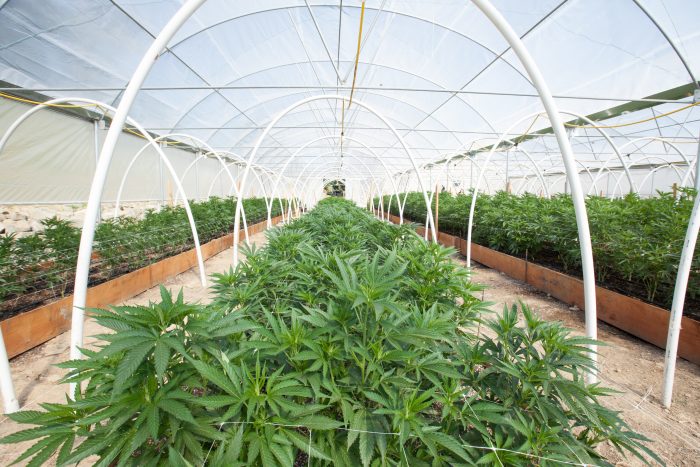BioTrack is the Official Connecticut State Traceability System

Cannabis License Info
Official Connecticut Traceability API Documents and BioTrack Resources
- API Documentation
- State User Training Guides and Videos
- Licensee Training Video – Dispensaries
- Licensee Training Video – Producers
- CT Licensee Manual
- BioTrack Licensee Agreement- User Terms
Legislation Information Updated: June 2022
Information will be updated here as it becomes available. Check back for updates! Please note; while we aim to keep this pages fully up to date with the latest information, cannabis laws are always changing. We encourage you to verify these rules and regulations in the official legal text, which we’ve linked throughout the page for your convenience.
Effective July 1, 2021, Connecticut legalized the use of marijuana for recreational purposes under An Act Concerning the Equitable and Responsible Regulation of Cannabis (SB 1201). Recreational marijuana is also commonly referred to as “adult use” cannabis to distinguish it from medical marijuana, which Connecticut legalized under An Act Concerning the Palliative Use of Marijuana (HB 5450) in 2012.
The Connecticut Department of Consumer Protection (DCP) is responsible for overseeing both the medical and adult use programs, as well as licensing and regulating all medical and adult use cannabis establishments.
The first adult use cannabis establishment license applications were released on February 3, 2022, at elicense.ct.gov. The release of additional license type applications continued on a weekly basis until March 24, 2022. Visit the DCP website to view the latest license updates.
Currently, the DCP is not accepting applications for medical marijuana establishment licenses. The DCP will provide more information regarding the new licensing process for medical marijuana dispensaries and producers in the near future.
Below you will find information regarding licensing procedures for adult use retailers, cultivators, and manufacturers. We keep this page up-to-date when new information becomes available. Please note that this page is for informational purposes only and should not be considered legal advice.
Retailers, also known as dispensaries, sell cannabis and cannabis products in a legal, regulated setting. In Connecticut, there are two different adult use retailer licenses.
Retailers are licensed to sell adult use cannabis and cannabis products to consumers over 21 years old and to research programs.
Hybrid retailers are licensed to sell adult use cannabis and cannabis products to consumers over 21 years old, as well as medical marijuana products to qualifying patients and caregivers.
Requirements
Each of the prospective retailer’s backers must complete an individual backer application and undergo a background check.
A backer is a person with a financial interest in a cannabis establishment who is at least 21 years old. A backer either owns at least 5% of the establishment in the aggregate with a spouse, parent, or child, or participates in the control, management, and/or operation of the establishment.
All individuals that work at a cannabis establishment must be at least 18 years old and obtain registration prior to beginning employment.
There are two separate lotteries that applicants are sorted into upon application: the social equity lottery and the general lottery.
To qualify for the social equity lottery, an applicant must be at least 65% owned and controlled by an individual or individuals who:
- Had an average household income of less than 300% of the state median household income over the three years immediately preceding the application date;
- Was a resident of a disproportionately impacted area at least five of the 10 years immediately preceding the application date; or
- Was a resident of a disproportionately impacted area for at least nine years prior to turning 18 years old.
An applicant cannot have more than one retailer license or have a backer with managerial control of more than one retailer license.
Process
The retailer license application process is split into three parts: the lottery application, the provisional application, and the final application. The initial application is the entry into the lottery process; all lottery applications must be completed electronically.
Along with a completed application, applicants must submit the following:
- A list of all backers, including their home addresses, social security numbers, and emails.
- A list of any other cannabis establishments the applicant is associated with, has applied for, or plans to apply for.
- A current organizational chart showing the ownership of the applicant, including each ownership percentage.
- Business establishment documents.
- All compensation agreements.
Applicants must also pay a nonrefundable application fee, which is dependent on license type and social equity status.
After the Connecticut Department of Consumer Protection (DCP) receives an initial application, accounts will be created for each of the applicant’s backers. The applicant will receive an email with instructions explaining how backers should apply. A lottery application will not be considered complete until each backer has completed and submitted their backer application. Backers are subject to a state and national criminal history records check to review for specific convictions. If an applicant’s initial application is selected through the lottery process and passes the DCP’s review, they will be able to submit a provisional application, along with a corresponding nonrefundable fee. Instructions for the provisional application will be provided once an applicant qualifies.
Provisional license applicants who have satisfied the requirements will then be able to submit a final application for licensure, along with a corresponding nonrefundable fee. Instructions for the final application will be provided once an applicant qualifies.
What kind of point-of-sale do I need to operate a Dispensary?
Most states require dispensaries to track and trace all of their cannabis-related products for regulatory and compliance reporting requirements. Our Dispensary Point of Sale and inventory management system provides comprehensive seed-to-sale cannabis tracking with a focus on compliant data points. If your state requires seed-to-sale systems to stay compliant, BioTrack has you covered. Our system is customized to meet the unique regulatory frameworks in each and every state.
Cultivators, also commonly referred to as growers or producers, are responsible for growing cannabis. Once harvested, mature plants are transferred to manufacturers.
In Connecticut, there are two different adult use cultivator licenses. Cultivators are licensed to cultivate, grow, and propagate cannabis at a facility with at least 15,000 square feet of grow space. Micro-cultivators are licensed to cultivate, grow, and propagate cannabis at a facility with between 2,000-10,000 square feet of grow space, prior to any expansion. Once licensed, micro- cultivators can expand up to 25,000 square feet, or switch to a cultivator license if they expand to over 25,000 square feet of grow space.
Requirements
Each of the prospective cultivator’s backers must complete an individual backer application and undergo a background check. A backer is a person with a financial interest in a cannabis establishment who is at least 21 years old. A backer either owns at least 5% of the establishment in the aggregate with a spouse, parent, or child, or participates in the control, management, and/or operation of the establishment. All individuals that work at a cannabis establishment must be at least 18 years old and obtain registration prior to beginning employment.
There are two separate lotteries that applicants are sorted into upon application: the social equity lottery and the general lottery. To qualify for the social equity lottery, an applicant must be at least 65% owned and controlled by an individual or individuals who:
- Had an average household income of less than 300% of the state median household income over the three years immediately preceding the application date;
- Was a resident of a disproportionately impacted area at least five of the 10 years immediately preceding the application date; or
- Was a resident of a disproportionately impacted area for at least nine years prior to turning 18 years old.
An applicant cannot have more than one cultivator license or have a backer with managerial control of more than one cultivator license.
Process
The cultivator license application process is split into three parts: the lottery application, the provisional application, and the final application. The initial application is the entry into the lottery process; all lottery applications must be completed electronically. Along with a completed application, applicants must submit the following:
- A list of all backers, including their home addresses, social security numbers, and emails.
- A list of any other cannabis establishments the applicant is associated with, has applied for, or plans to apply for.
- A current organizational chart showing the ownership of the applicant, including each ownership percentage.
- Business establishment documents.
- All compensation agreements.
Applicants must also pay a nonrefundable application fee, which is dependent on license type and social equity status.
After the Connecticut Department of Consumer Protection (DCP) receives an initial application, accounts will be created for each of the applicant’s backers. The applicant will receive an email with instructions explaining how backers should apply. A lottery application will not be considered complete until each backer has completed and submitted their backer application. Backers are subject to a state and national criminal history records check to review for specific convictions.
If an applicant’s initial application is selected through the lottery process and passes the DCP’s review, they will be able to submit a provisional application, along with a corresponding nonrefundable fee. Instructions for the provisional application will be provided once an applicant qualifies.
Provisional license applicants who have satisfied the requirements will then be able to submit a final application for licensure, along with a corresponding nonrefundable fee. Instructions for the final application will be provided once an applicant qualifies.
What kind of tracking system do I need to operate a Cultivation Facility?
Most states require an extensive seed-to-sale cannabis tracking system to monitor cultivation efforts and inventory. Our cultivation seed-to-sale-tracking solution provides comprehensive data tracking with an emphasis on compliance. Customized to meet the unique regulatory frameworks in each state, BioTrack also features an all-in-one business tool to help you operate every aspect of the cultivation business by itself, or as part of the vertically-integrated cannabis business.
Manufacturers—also known as processors—take harvested cannabis from cultivators and create derivative extracts for edibles, concentrates, topicals, and prepacks. Once finished, their products are transported to retailers. In Connecticut, there are three different cannabis manufacturer licenses.
Product manufacturers are licensed to perform cannabis extractions, chemical synthesis, and all other processing activities. Product manufacturers can sell, transfer, and transport their own products to cannabis establishments, laboratories, and research programs. Product manufacturers cannot deliver any cannabis directly (or through a delivery service) to consumers, qualifying patients, or caregivers.
Food and beverage manufacturers are licensed to use cannabis as an ingredient and incorporate it into foods and beverages. Food and beverage manufacturers cannot sell directly to consumers, qualifying patients, or caregivers, and can only sell, transfer, and transport their own products to cannabis establishments, laboratories, and research programs.
Product packagers are licensed to ensure that cannabis products are labeled and packaged in compliance with all state laws, regulations, and policies.
Requirements
Each of the prospective manufacturer’s backers must complete an individual backer application and undergo a background check. A backer is a person with a financial interest in a cannabis establishment who is at least 21 years old. A backer either owns at least 5% of the establishment in the aggregate with a spouse, parent, or child, or participates in the control, management, and/or operation of the establishment.
All individuals that work at a cannabis establishment must be at least 18 years old and obtain registration prior to beginning employment.
There are two separate lotteries that applicants are sorted into upon application: the social equity lottery and the general lottery. To qualify for the social equity lottery, an applicant must be at least 65% owned and controlled by an individual or individuals who:
- Had an average household income of less than 300% of the state median household income over the three years immediately preceding the application date;
- Was a resident of a disproportionately impacted area at least five of the 10 years immediately preceding the application date; or
- Was a resident of a disproportionately impacted area for at least nine years prior to turning 18 years old.
An applicant cannot have more than one manufacturer license or have a backer with managerial control of more than one manufacturer license.
Process
The manufacturer license application process is split into three parts: the lottery application, the provisional application, and the final application. The initial application is the entry into the lottery process; all lottery applications must be completed electronically.
Along with a completed application, applicants must submit the following:
- A list of all backers, including their home addresses, social security numbers, and emails.
- A list of any other cannabis establishments the applicant is associated with, has applied for, or plans to apply for.
- A current organizational chart showing the ownership of the applicant, including each ownership percentage.
- Business establishment documents.
- All compensation agreements.
Applicants must also pay a nonrefundable application fee, which is dependent on license type and social equity status.
After the Connecticut Department of Consumer Protection (DCP) receives an initial application accounts will be created for each of the applicant’s backers. The applicant will receive an email with instructions explaining how backers should apply. A lottery application will not be considered complete until each backer has completed and submitted their backer application.
Backers are subject to a state and national criminal history records check to review for specific convictions. If an applicant’s initial application is selected through the lottery process and passes the DCP’s review, they will be able to submit a provisional application, along with a corresponding nonrefundable fee. Instructions for the provisional application will be provided once an applicant qualifies.
Provisional license applicants who have satisfied the requirements will then be able to submit a final application for licensure, along with a corresponding nonrefundable fee. Instructions for the final application will be provided once an applicant qualifies.
What kind of tracking system do I need to operate a Manufacturing Facility?
Most states require an extensive seed-to-sale cannabis tracking system to monitor cultivation efforts and inventory. Our processing seed-to-sale-tracking solution provides comprehensive data tracking with an emphasis on compliance. Customized to meet the unique regulatory frameworks in each state, BioTrack also features an all-in-one business tool to help you operate every aspect of the cultivation business by itself, or as part of the vertically-integrated cannabis business.
Delivery Services
In Connecticut, delivery services are licensed to deliver cannabis and cannabis products from cannabis establishments to consumers, qualifying patients, and caregivers. Delivery services only deliver cannabis between cannabis establishments and end users, and each individual order must be delivered—or returned to the originating establishment—within a 24-hour period.
Transporters
In Connecticut, transporters are licensed to deliver cannabis and cannabis products between cannabis establishments, laboratories, and research programs.
Q&A
Who can purchase cannabis in Connecticut?
Connecticut residents over the age of 21 can purchase adult use cannabis from licensed retailers and hybrid retailers with a valid government-issued photo ID (e.g. driver’s license, passport.)
Connecticut patients aged 18 years and older with medical cannabis registry ID cards, and minors with a primary caregiver who is at least 18 years old, can purchase medical cannabis from licensed dispensaries and hybrid retailers.
Are there qualifying conditions for medical cannabis patients?
Yes. Patients must be diagnosed with a debilitating medical condition to use medical cannabis in Connecticut. You can find a list of qualifying conditions on the Connecticut Department of Consumer Protection (DCP) website.
The DCP accepts petitions to add additional conditions, treatments, and diseases to the list of qualifying conditions. You can learn more about the petition process here.
What state agency is in charge of retail cannabis licensing in Connecticut?
The Connecticut Department of Consumer Protection (DCP) is in charge of retail cannabis licensing.
What are the application fees and costs for adult use cannabis retailers?
Retailer applicants and hybrid retailer applicants have the same application fees. Non-social equity applicants must pay a $500 nonrefundable lottery application fee, a $5,000 nonrefundable provisional application fee, and a $25,000 nonrefundable licensing fee. Social equity applicants must pay a $250 nonrefundable lottery application fee, a $2,500 nonrefundable provisional application fee, and a $12,500 nonrefundable licensing fee.
Applicants must also pay a $100 nonrefundable fee for each backer application submitted.
What is the official state cannabis verification system in Connecticut?
BioTrack is Connecticut’s official cannabis verification and monitoring system. Our cannabis and hemp traceability system has extensive tracking and reporting capabilities to assist state and local governments with enforcing regulations, collecting taxes, verifying product quality, and preventing illegal cannabis diversion and inversion.
What are the tracking and reporting requirements for cannabis retailers in Connecticut?
Retailers must record each sale, transfer, return, recall, spoilage, and destruction of cannabis at their facility. Either during or immediately after a transaction, retailers must enter the following into the system:
- The date and time
- The retailer’s name, license number, and address
- The name and license/registration number of the employee(s) dispensing the cannabis
- The unique identifier of the cannabis being dispensed
- The product, brand name, or type of cannabis being dispensed
- The amount of cannabis being dispensed by weight in metric and imperial units
Retailers must reconcile the records of their point-of-sale software with their records in Connecticut’s Cannabis Analytic Tracking System at the end of each business day. If reconciliation reveals a discrepancy, the license holder must determine the cause and take corrective action.
Retailers must also reconcile their physical inventory with their records in Connecticut’s Cannabis Analytic Tracking System at least once every calendar week. If reconciliation reveals a discrepancy, the license holder must conduct an audit to determine the cause and take corrective action.
What are the inventory control system requirements for cannabis retailers in Connecticut?
The inventory point-of-sale system must be real-time, web-based, and maintain an interface with the Connecticut Cannabis Analytic Tracking System.
Is BioTrack compliant with Connecticut’s cannabis tracking, reporting, and inventory control requirements?
Yes. Our extensive seed-to-sale software allows licensed operators to remain compliant while identifying key data points to streamline and optimize inventory management at each phase of the operation. Some of our features include:
- Automatic reporting to the state system.
- Custom compliance-focused reporting.
- Waste and destruction tracking.
- Unique alphanumeric tags.
- Transport manifests.
- Real-time product recall information.
- Compliant labels customized to your business.
- Industry-leading security standards.
- 24/7 access to real-time data, analytics, and reports.
- Integration metrics.






